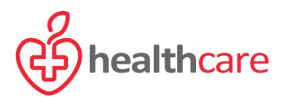
Health sharing ministries, also known as health care sharing ministries, are gaining popularity as an alternative to traditional health insurance. These ministries operate on the principle of members sharing each other’s medical expenses. Unlike insurance, which involves paying premiums to an insurance company, health sharing ministries involve members contributing a monthly amount, which is then used to pay for the medical expenses of other members. This article explores the reasons behind the growing popularity of health sharing ministries.
Introduction
Health sharing ministries are organizations in which members with similar religious or ethical beliefs share medical expenses among themselves. These ministries are not insurance companies, but rather groups of individuals who agree to share each other’s medical bills. Members typically share a common set of beliefs and values, and often belong to the same religious denomination.
How Health Sharing Ministries Work
To join a health sharing ministry, individuals must typically adhere to certain beliefs and practices. For example, many health sharing ministries require members to abstain from tobacco and illegal drugs, and to limit alcohol consumption. Members must also agree to certain lifestyle guidelines, such as regular exercise and healthy eating habits.
In terms of contributions, members of health sharing ministries typically pay a monthly amount, similar to a premium in traditional insurance. This money is pooled together and used to pay for the medical expenses of other members. When a member has a medical need, they submit their bills to the ministry, which then uses the pooled funds to pay for them.
Benefits of Health Sharing Ministries
One of the main benefits of health sharing ministries is cost savings. Because members are sharing each other’s medical expenses, the monthly contributions are often lower than traditional insurance premiums. Additionally, many health sharing ministries offer more flexibility in terms of healthcare choices, allowing members to choose their own doctors and hospitals.
Factors Contributing to Their Popularity
There are several factors contributing to the popularity of health sharing ministries. One of the main reasons is dissatisfaction with traditional health insurance. Many people find that traditional insurance is expensive and offers limited coverage options. Health sharing ministries offer a more affordable alternative, with more flexibility in terms of healthcare choices.
Religious beliefs and values also play a role in the popularity of health sharing ministries. Many members are attracted to the idea of sharing each other’s burdens and helping fellow believers in need. Additionally, some health sharing ministries are exempt from certain requirements of the Affordable Care Act (ACA), which has also contributed to their popularity.
Challenges and Limitations
Despite their growing popularity, health sharing ministries are not without challenges and limitations. One of the main challenges is that they are not regulated like traditional insurance companies. This means that there are fewer consumer protections in place, and members may not have recourse if their medical bills are not paid.
Another limitation of health sharing ministries is that they may not provide coverage for pre-existing conditions. This can be a significant drawback for individuals with chronic health issues who may require ongoing medical care.
Comparison with Traditional Health Insurance
When comparing health sharing ministries to traditional health insurance, there are several key differences to consider. One of the main differences is cost. Health sharing ministries are often more affordable than traditional insurance, especially for younger, healthier individuals. However, they may not offer the same level of coverage for certain medical expenses.
In terms of coverage options, health sharing ministries typically offer more flexibility than traditional insurance. Members are often able to choose their own doctors and hospitals, and may have more control over their healthcare decisions.
Future Outlook
The future of health sharing ministries is uncertain. On one hand, they offer a more affordable alternative to traditional health insurance, which may appeal to many individuals. However, their lack of regulation and limited coverage options may be a barrier to some people.
Conclusion
In conclusion, health sharing ministries are gaining popularity as an alternative to traditional health insurance. They offer a more affordable option for many individuals, with more flexibility in terms of healthcare choices. However, there are challenges and limitations to consider, and it remains to be seen how they will evolve in the future.






